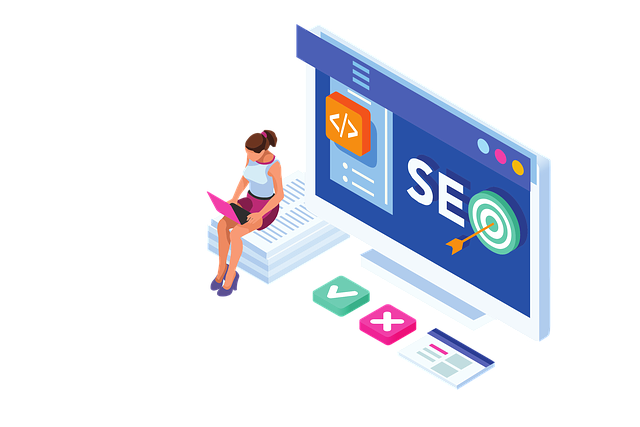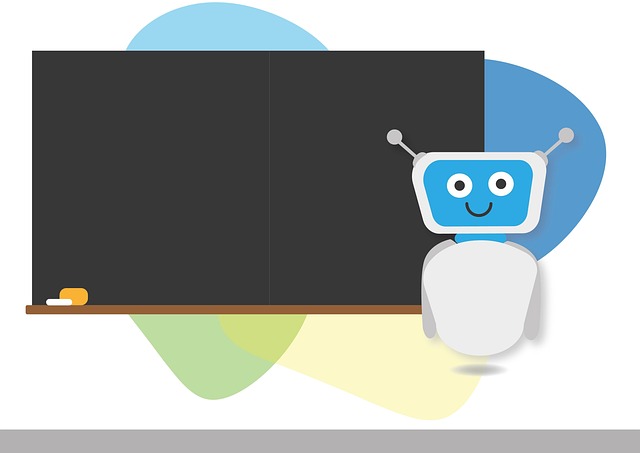The ideal AI chatbot for ecommerce combines robust NLP for conversations, query understanding, and accurate responses, handling multiple inquiries concurrently for efficient service. It seamlessly integrates with platforms like Shopify, WooCommerce, Facebook Messenger, WhatsApp Business, and Slack to offer features such as product recommendations, inventory management, order tracking, and 24/7 support, enhancing the shopping journey. Advanced analytics capabilities gain customer insights for optimization. Leading retailers use AI chatbots to drive sales and boost satisfaction through personalized interactions and 24/7 availability. To choose a chatbot, identify business needs, research options based on functionalities and integrations, customize it according to brand requirements, test before launch, and monitor key metrics like conversion rate, CSAT, first-response time, and average handle time for optimal performance.
In the digital age, AI chatbots are transforming the way businesses interact with customers. This article explores the best AI chatbots specifically tailored for the ecommerce industry. We’ll guide you through defining the key features that set top-tier chatbots apart, highlighting successful integration strategies and showcasing real-world use cases. Learn from the platforms hosting these advanced solutions and discover essential metrics to measure their performance and return on investment.
- Defining the Best AI Chatbot for Ecommerce: Key Features and Functions
- Top Platforms Hosting Top-Tier Ecommerce Chatbots: An Overview
- Use Cases: Real-World Success Stories of AI Chatbots in Ecommerce
- Integrating an AI Chatbot into Your Ecommerce Site: Step-by-Step Guide
- Measuring Success: Metrics to Assess Performance and ROI of Your Chatbot
Defining the Best AI Chatbot for Ecommerce: Key Features and Functions

When it comes to defining the best AI chatbot for ecommerce, several key features and functions stand out as essential. These include natural language processing (NLP) capabilities that enable seamless interaction with customers in a conversational manner, understanding complex queries, and providing accurate responses. A top-tier chatbot should be able to handle multiple customer inquiries simultaneously, ensuring efficient service and reduced response times.
Moreover, integration with existing ecommerce platforms is crucial. The best AI chatbot for ecommerce seamlessly integrates with popular shopping carts and customer relationship management (CRM) systems, allowing for a unified customer experience. It should also offer features like product recommendations, inventory management, and order tracking to enhance the overall shopping journey. Additionally, advanced analytics capabilities that provide insights into customer behavior and preferences are invaluable for businesses looking to optimize their strategies.
Top Platforms Hosting Top-Tier Ecommerce Chatbots: An Overview

In today’s digital era, the best AI chatbots for ecommerce are transforming the way businesses interact with their customers. Top platforms like Facebook Messenger, WhatsApp Business, and Slack have emerged as leading hosts for these advanced bots due to their widespread adoption and robust messaging capabilities. These platforms allow for seamless integration of chatbot technology, enabling businesses to provide 24/7 customer support, process orders efficiently, and even offer personalized product recommendations—all while enhancing the overall shopping experience.
Amongst the many options available, chatbots developed using cutting-edge natural language processing (NLP) and machine learning algorithms stand out. They can understand complex queries, engage in conversational interactions, and adapt to individual user preferences. Whether it’s helping customers find the perfect product or providing after-sales support, these top-tier ecommerce chatbots are revolutionizing how businesses connect with their clientele.
Use Cases: Real-World Success Stories of AI Chatbots in Ecommerce

In today’s digital era, AI chatbots have emerged as game-changers in the realm of e-commerce, revolutionizing customer interactions and enhancing overall shopping experiences. These intelligent virtual assistants offer a wide range of use cases, from providing personalized product recommendations to handling customer support inquiries efficiently. For instance, leading retailers are leveraging the best AI chatbot for e-commerce to power conversational shopping experiences, allowing customers to browse products, seek information, and make purchases with minimal assistance.
Real-world success stories highlight the effectiveness of these chatbots in driving sales and improving customer satisfaction. They can navigate complex product catalogs, understand natural language queries, and offer tailored suggestions based on user preferences. Moreover, they are available 24/7, ensuring that customers receive instant support and guidance at any time. This level of accessibility and personalization fosters a sense of convenience and loyalty among shoppers, making AI chatbots an indispensable tool for modern e-commerce businesses.
Integrating an AI Chatbot into Your Ecommerce Site: Step-by-Step Guide

Integrating an AI Chatbot into your Ecommerce site can significantly enhance customer experience and drive sales. Here’s a step-by-step guide to help you choose and implement the best AI chatbot for ecommerce.
1. Identify Your Needs: Start by understanding your business goals. Are you looking to improve customer support, increase sales through personalized recommendations, or reduce cart abandonment? Different best ai chatbots for ecommerce offer specialized features, so aligning your needs with a chatbot’s capabilities is crucial. Consider factors like ease of integration, conversational AI, and scalability to ensure the chatbot fits your long-term vision.
2. Research and Compare Chatbots: Explore various options available in the market. Look for chatbots known for their robust ecommerce functionalities, such as natural language processing (NLP), product recommendations, and seamless integration with popular ecommerce platforms like Shopify or WooCommerce. Read reviews, analyze case studies, and compare features to find a chatbot that best suits your requirements. Ensure it offers a good balance between advanced AI capabilities and user-friendly interface for both you and your customers.
3. Choose a Platform: Select a platform that supports the chatbot you’ve chosen. Some platforms offer pre-built integrations while others require custom coding. Evaluate your technical resources and expertise to make an informed decision. Consider using platforms known for their developer-friendly environments and extensive documentation, which can simplify the integration process.
4. Customize and Train: Tailor the chatbot to match your brand voice and guidelines. Train the AI model on relevant data, including product descriptions, FAQs, and customer interactions, to ensure accurate and contextually appropriate responses. Continuous learning and refinement based on user interactions will further improve the chatbot’s performance over time.
5. Implement and Test: Integrate the chatbot into your ecommerce site and thoroughly test its functionality. Ensure it seamlessly navigates users through the purchasing process, offers helpful product suggestions, and handles common queries accurately. Address any issues or bugs before launching to ensure a smooth user experience.
6. Monitor and Optimize: Regularly monitor the chatbot’s performance using analytics tools provided by the platform. Track key metrics like conversation rates, customer satisfaction scores, and sales conversions. Use these insights to optimize the chatbot’s responses, refine its training data, and enhance its overall effectiveness in driving business value.
Measuring Success: Metrics to Assess Performance and ROI of Your Chatbot

Measuring success is a critical aspect of evaluating whether your chatbot investment is delivering tangible results. When it comes to assessing the performance and return on investment (ROI) of an AI chatbot, particularly in the ecommerce space, several key metrics come into play. One of the primary measures is conversion rate, which tracks how effectively the chatbot guides users towards making a purchase. An increase in conversions indicates that the chatbot is providing valuable assistance and enhancing customer experience.
Another essential metric is customer satisfaction (CSAT). By gathering feedback from users who interact with the chatbot, you can gauge their level of happiness and satisfaction with the engagement. High CSAT scores suggest that the chatbot is delivering on its promises, offering helpful responses, and creating a positive brand association. Additionally, tracking first-response time and average handle time can provide insights into the chatbot’s efficiency and ability to address customer queries promptly. These metrics collectively help identify areas for improvement, ensuring your best AI chatbot for ecommerce performs optimally.
The integration of the best AI chatbots in ecommerce has proven to be a game-changer, enhancing customer experience and driving sales. By understanding key features, exploring top platforms, and learning from real-world success stories, businesses can effectively leverage these tools. Following our step-by-step guide for implementation and utilizing appropriate metrics for performance assessment, you’re well-equipped to choose and integrate the best AI chatbot for your ecommerce platform, maximizing its potential to revolutionize your business.
